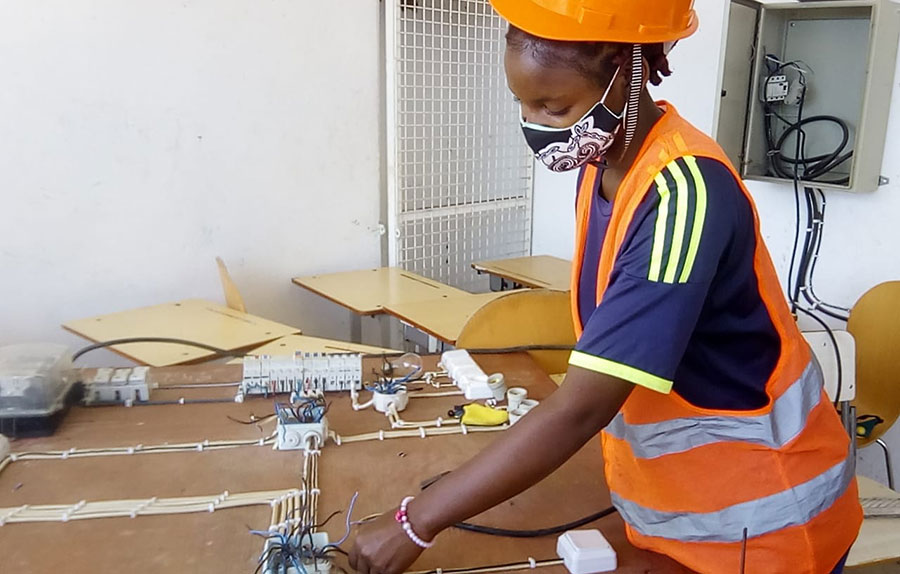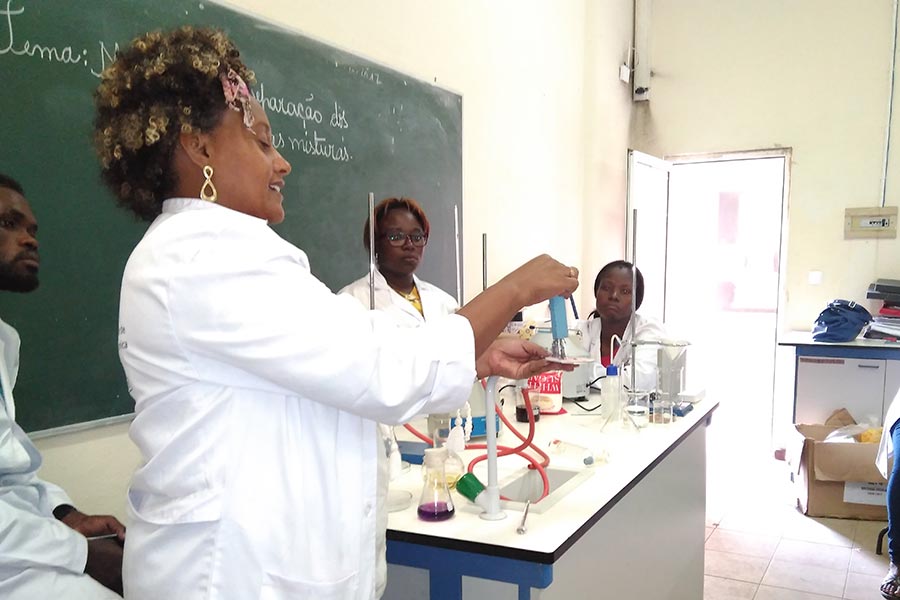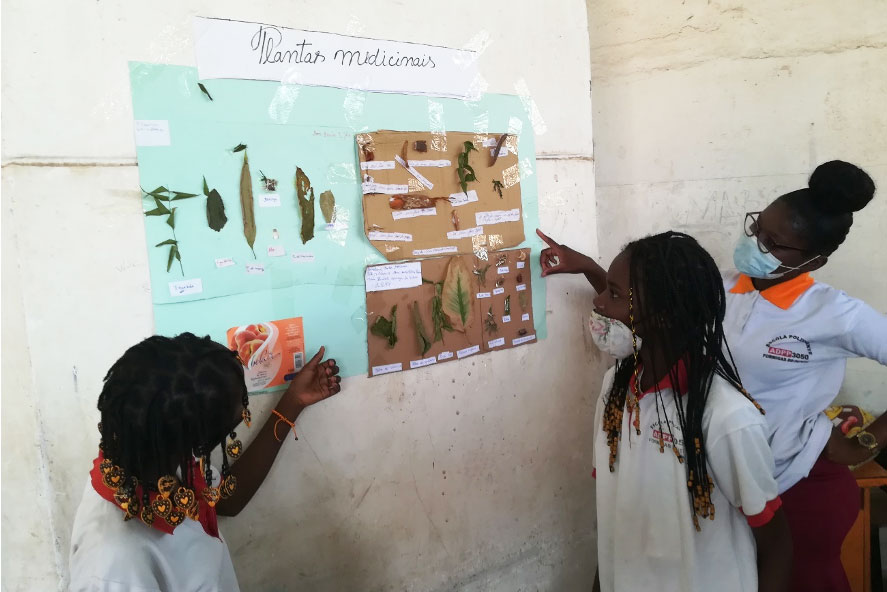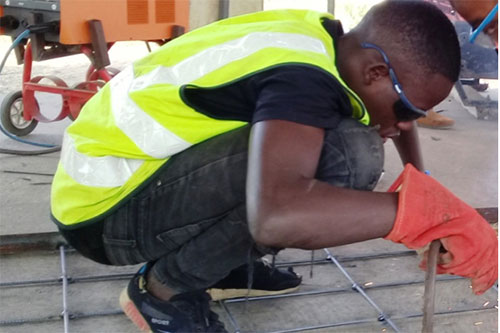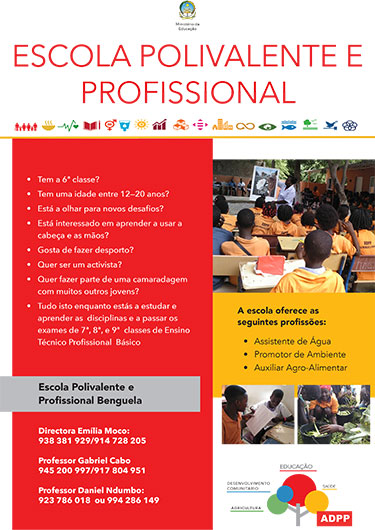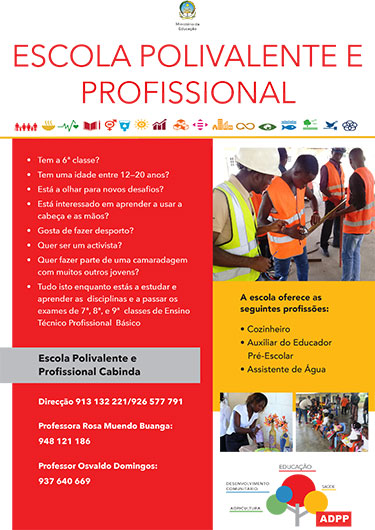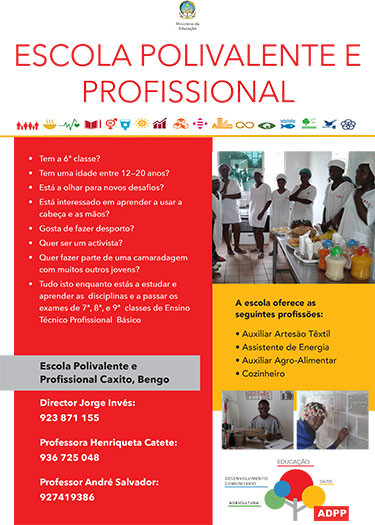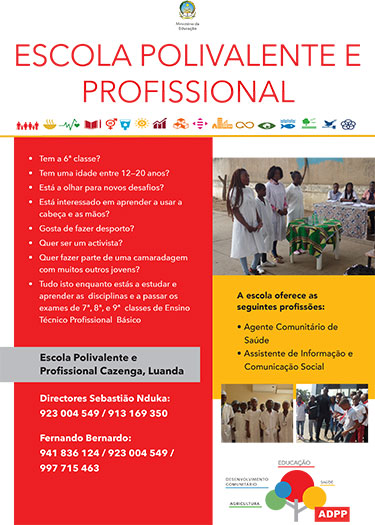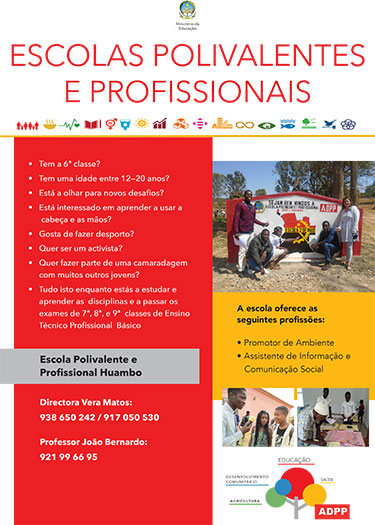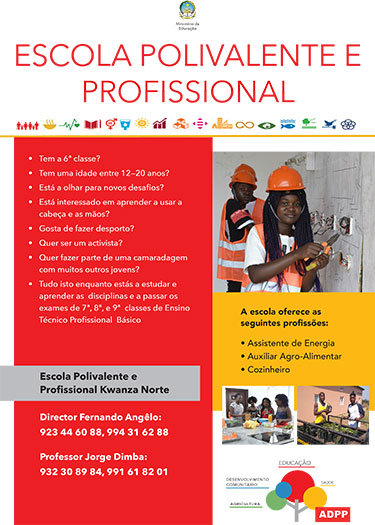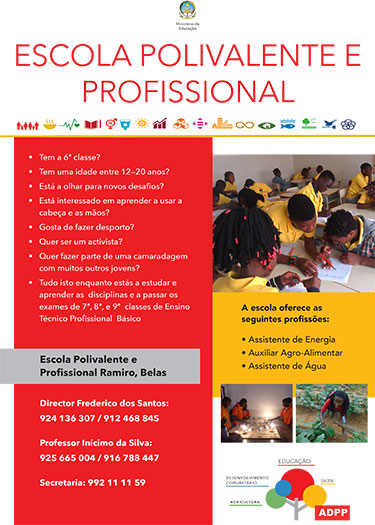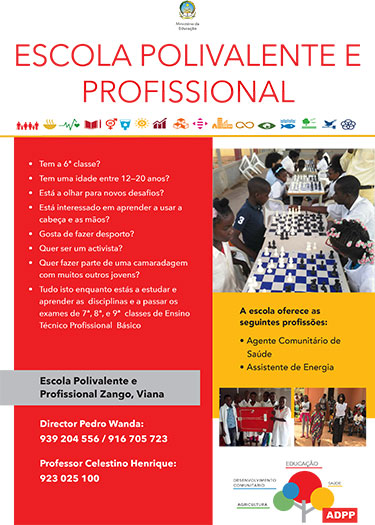Students graduated since 2011
Students completed their three-year education in 2019 and graduated in January 2020
Students studying in 7th-9th Grade across 8 schools
THE POLYTECHNIC PROGRAMME
ADPP polytechnics are designed to meet the growing need for post-primary education. Students can gain both their 9th Grade certificate as well as a technical diploma in one of the up to four professions on offer at their school.
Key attributes of the education include students taking responsibility for their own learning, group work, investigations, field trips, horticulture, community actions, work experience, practical tests, oral exams plus close links with local industry and businesses.
In the first year of the programme, students get to grips with new ways of learning and study 7th Grade subjects. In second year, 8th Grade, the students focus on the theory and practice of their chosen profession while continuing to study the national curriculum.
The Practical Aptitude exam in the third year draws together theoretical and practical skills learned throughout the education, as well as the students’ ability to carry out an independent piece of work and present the results.
Students complete their lower secondary education by sitting national exams.
Students study one of up to four POLYTECHNIC PROFESSIONS on offer at each school:
Community Health Agent: disease prevention and treatment, basic sanitation, HIV testing, health campaigns, nutrition and reducing infant mortality are among the topics in this profession.
Energy Assistant: the students learn about electrical installations and their maintenance, and about alternative energy sources such as solar power and biofuel.
Environment Promoter: global warming and climate change are key subjects, together with renewable energy. Practical steps to take to protect and improve the local environment are emphasised.
Food Producer: basic agricultural practices, knowledge of soil types and how to fight pests and diseases among plants feature in the Food Producer syllabus.
Preschool Assistant: this course helps understand children and how they develop, physically and mentally, and how to encourage that development through sport, games, and pedagogic activities.
Modern Cook: competence in a modern kitchen, healthy eating, food safety, recipes from around the world and nutritional needs are some of the elements of this course.
Water Assistant: students learn about water as an important resource, how to purify drinking water, make and maintain wells as well as install simple irrigation systems. Water-borne diseases and their prevention also features.
Information and Media Assistant: all forms of communication and media are included in this course, from written and spoken to video and radio, posters, illustration, poetry, literature, essays and social media.
Textile Artisan: introduced in 2017, the course teaches students how to make all kinds of garments and useful household items, and the steps to take to turn this handicraft into a source of income.
TIMELINE
GLOBAL GOALS
Equal Access to Affordable Technical, Vocational and Higher Education
Free Primary and Secondary Education
Build and upgrade inclusive and safe schools
No Discrimination in Education
Universal Literacy and Numeracy
Education for Sustainable Development and Global Citizenship
Increase the Number of People with Relevant Skills for Financial Success
STORIES
Hipólito Lembe Chivulo, EPP Cabinda
ENROLMENT PAMPHLETS (PT)


